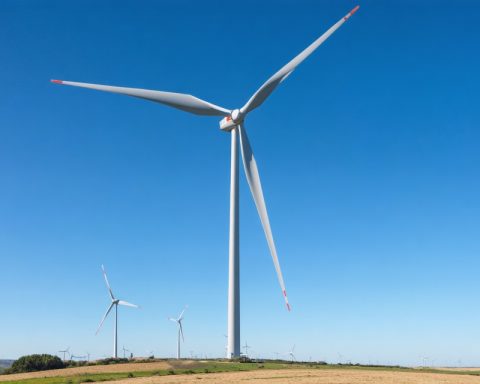- Azerbaijan is undergoing a significant shift towards electric vehicles (EVs), heavily influenced by China’s role in global EV production.
- Azerbaijan’s capital, Baku, is seeing an increase in silent, sleek EVs on its roads, with over 75% of imported EVs coming from China.
- Major Chinese companies, like BYD and Nio, are shaping Azerbaijan’s EV market through affordable and innovative products.
- Government policies, such as tax exemptions and reduced duties, are making low-emission vehicles more accessible to Azerbaijani households.
- A partnership between Azerbaijani and Chinese firms has led to the introduction of 160 new electric buses.
- Azerbaijan faces the challenge of avoiding over-dependence on China by diversifying its EV supply chain and fostering local production.
- To ensure balanced growth, Azerbaijan should engage Western and South Korean innovations while promoting homegrown EV infrastructure.
- Azerbaijan’s move towards EVs is driven by economic interests and a commitment to environmental responsibility.
In a landscape dominated by rolling mountains and ancient architecture, Azerbaijan is undergoing a transformation. A new era of transportation is emerging, humming with the vibrant charge of electric vehicles (EVs). At the forefront of this green revolution stands China, a titan in global EV production, rapidly electrifying Azerbaijan’s roadways with its affordable and innovative vehicles.
The vibrant energy of Baku, Azerbaijan’s capital, is now mirrored in its traffic, increasingly comprised of sleek, silent electric cars. This change isn’t just beneficial for the environment; it’s a strategic partnership that’s shifting the region’s economic gears. Over three-quarters of Azerbaijan’s imported electric vehicles now bear the stamp of Chinese ingenuity. Giants such as BYD and Nio have become synonymous with green transport, thanks to their aggressive market expansion and competitive pricing.
These shifts follow a trail of numbers that increase at a breathtaking pace. From 4,636 to over 15,000 vehicles in just one year, Azerbaijan’s imports of Chinese hybrid and electric models reflect a nation eagerly trading exhaust fumes for electricity. It’s a transformation powered by policies that favor sustainability, with tax exemptions and reduced duties making the low-emission lifestyle more accessible to the average Azerbaijani household.
But the heart of this movement beats strongest in the newly minted partnership between Azerbaijani firms and Chinese manufacturers. An agreement inked between Azerbaijan’s Electrify Azerbaijan LLC and BYD has already brought 160 gleaming new electric buses into operation. This not only fosters job creation but also propels Azerbaijan closer to its ambitious environmental aspirations.
However, this dance with China is not without its cautious choreography. While the presence of Chinese EVs extends Azerbaijan’s reach toward a greener future, it also sows seeds of dependency. The risk is clear: allowing China too strong a foothold could limit Azerbaijan’s autonomy, tethering its market to decisions made in Beijing. To balance the scales, Azerbaijan must not only embrace but energize the localization of EV component production. This necessitates a leap—a forward-thinking initiative to cultivate homegrown talent and infrastructure that could foster a diversified EV ecosystem.
The overarching narrative is one of balance and vision. As China confidently anchors itself in Azerbaijan’s market, the nation stands at a juncture—one where collaboration must be keenly matched with cautious strategizing. To secure a future where Azerbaijan is not just a participant but a pivotal player in the region’s green transformation, the government must diversify its partnerships, drawing in Western and South Korean innovation as counterweights to its Chinese ties.
In the end, Azerbaijan’s embrace of the electric era serves not merely as a testament to economic pragmatism, but as a beacon of environmental responsibility. The streets of Baku whisper not just innovation, but the promise of sustainable progress.
The Electric Revolution in Azerbaijan: Opportunities, Challenges, and Strategic Moves
The Rise of Electric Vehicles in Azerbaijan
Azerbaijan is rapidly transforming its transportation landscape by adopting electric vehicles (EVs), driven largely by the involvement of China’s EV industry. This shift towards green energy is seen prominently in Baku, the capital, where the number of electric cars on the road is steadily increasing. Chinese automotive giants like BYD and Nio have become integral players, owing to their competitive pricing strategies and innovative vehicle models.
Economic and Strategic Benefits
The move towards electric vehicles is strategically advantageous. Not only does it align with global sustainability goals, but it also provides economic benefits through reduced fuel imports and increased energy security. Government policies such as tax exemptions and reduced import duties have made electric vehicles more appealing and accessible to Azerbaijani consumers.
Key Partnerships and Developments
A noteworthy development is the collaboration between Electrify Azerbaijan LLC and BYD, which has brought 160 new electric buses into operation. Such partnerships are crucial, not only for job creation but also for fostering technological transfer and skill development within the local workforce.
Challenges and Dependencies
Despite the progress, there are concerns regarding the dependency on Chinese manufacturers. Relying heavily on Chinese EVs could limit Azerbaijan’s autonomy in the long run. It’s crucial for Azerbaijan to diversify its partnerships, thereby ensuring a more balanced and resilient market presence. Engaging with Western and South Korean EV companies could provide a counterbalance and stimulate local innovation.
Localization and Infrastructure
For Azerbaijan to truly become a pivotal player in the EV landscape, there needs to be a focus on localizing component production. This can be achieved by investing in homegrown talent and infrastructure. By cultivating a skilled workforce and developing local capabilities in component manufacturing, Azerbaijan can foster a more diverse EV ecosystem that is not solely reliant on foreign technology.
Market Trends and Future Predictions
Given the rapid pace of EV adoption, Azerbaijan’s market is poised for significant growth. According to market forecasts, continued government support and international partnerships could see the number of EVs in Azerbaijan doubling over the next few years. This will necessitate advancements in charging infrastructure and energy management systems.
Actionable Recommendations
1. Policy Support: Continue and expand favorable policies and incentives for EV adoption to make them more competitive compared to conventional vehicles.
2. Infrastructure Development: Accelerate the development of charging infrastructure across urban and rural areas to support the growing number of electric vehicles.
3. Diversified Partnerships: Seek partnerships with a variety of international EV manufacturers to reduce dependency on any single country, thereby fostering a competitive and resilient market.
4. Investment in Education: Encourage educational programs and research initiatives in renewable energy and automotive technology to cultivate a skilled workforce.
5. Sustainability Integration: Integrate renewable energy sources with the EV charging grid to ensure that the overall environmental impact remains positive.
Final Thoughts
The movement towards electric vehicles in Azerbaijan is both a strategic evolution and an environmental necessity. Balancing international partnerships while promoting local innovation will be key to achieving long-term sustainability and economic growth. By following these recommendations, Azerbaijan can not only participate but lead in the green transformation of the region.
For more information on electric vehicles and sustainable solutions, visit Nissan Global or Hyundai.


















